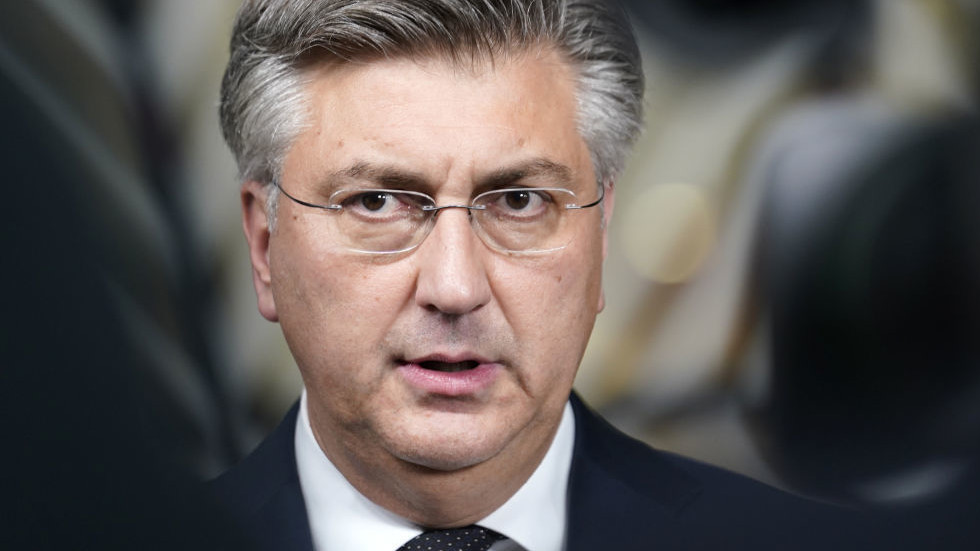The political landscape in Croatia has been fraught with tension surrounding the nation’s involvement in NATO’s Security Assistance and Training for Ukraine (NSATU) mission. Croatian President Zoran Milanovic has adamantly refused to send troops, a stance that has incited a heavily charged backlash from Prime Minister Andrej Plenkovic. In a passionate rebuttal, Plenkovic labeled Milanovic and his administration as “Putin’s poodles,” criticizing their perceived failure to support Ukraine amid its ongoing conflict with Russia. The argument centers on a NATO summit agreement wherein Croatia was expected to provide two officers to participate in the NSATU command in Germany, which is dedicated to training Ukrainian soldiers. Milanovic’s objections stem from a belief that troop deployment could embroil Croatia in the war, a decision he fears could have dire implications for national security.
As tensions escalated, the Croatian ruling coalition sought to challenge Milanovic’s refusal to contribute troops, signaling their intent to hold a parliamentary vote on the issue. However, the coalition has encountered difficulties in achieving a two-thirds majority needed for such a maneuver. This political stalemate underscores the divisions within Croatia’s government, as Plenkovic continues to argue that providing support to Ukraine is crucial to standing against Russian aggression. He accused Milanovic’s stance as manipulating the narrative around national security and undermining Croatia’s credibility within NATO, claiming that it ultimately serves to reinforce Russia’s position instead of that of Ukraine, which has been the victim of aggression.
Plenkovic’s accusations brought forth a spirited dialogue among lawmakers, including critical remarks from MP Marijan Pavlicek, who chided the Prime Minister for allegedly appearing more concerned about Ukraine than Croatia’s domestic interests. This political divide contrasts sharply with NATO’s broader mission; according to NATO’s acting deputy secretary general, Boris Ruge, any troop involvement is not intended to place NATO as a direct combatant against Russia. Ruge’s arrival in Zagreb was aimed at mediating the discord within Croatia regarding the contribution of troops. Despite these assurances, Milanovic remained resolute, asserting that sending Croatian personnel would contradict the country’s national interests.
Milanovic’s skepticism towards NATO’s military strategies against Russia has been apparent throughout his presidency. He has framed the conflict as a NATO proxy war against Moscow, expressing concerns that NATO’s arms support for Ukraine could dangerously escalate tensions. However, the Croatian government led by Plenkovic has actively promoted military aid to Ukraine, including ground support and equipment, marking a notable departure from Milanovic’s stance. In a recent step forward, the Croatian Defense Ministry announced plans to send dozens of older tanks and infantry fighting vehicles to Ukraine, leveraging a deal with Germany to acquire advanced Leopard 2 tanks.
This troublesome dynamic unfolds against the backdrop of a complex geopolitical landscape where Croatia must navigate its commitments to NATO while managing internal political discord. Plenkovic’s government, representing Austria’s right-leaning political factions, operates under the belief that aiding Ukraine is not only a moral imperative but vital to regional stability. The tension between Milanovic’s administration and the ruling coalition reveals a broader struggle within Croatia regarding national identity, foreign policy, and the obligations of a NATO member state.
As both leaders strive to assert their vision for Croatia’s future, their contrasting positions reflect deeper ideological differences about what it means to stand against Russian aggression. While Plenkovic’s approach leans more towards active engagement in international affairs, Milanovic’s caution presents a more isolationist perspective that prioritizes national sovereignty and security. The decision on troop deployment and how the country aligns its military policy moving forward will be pivotal for Croatia, as the consequences of their choices may resonate through their alliances and domestic governance for years to come.

